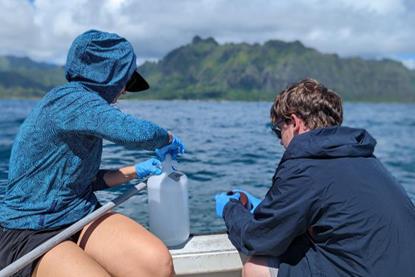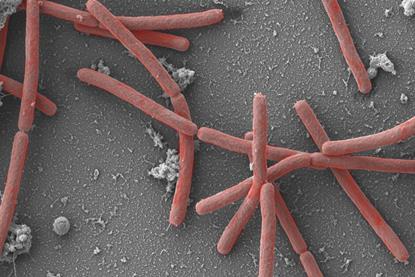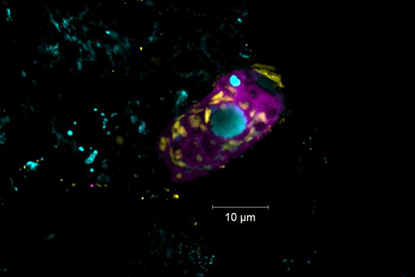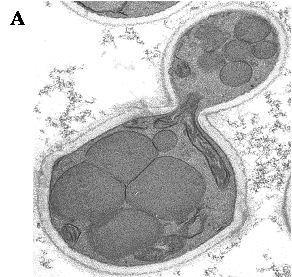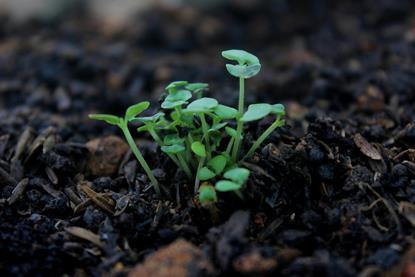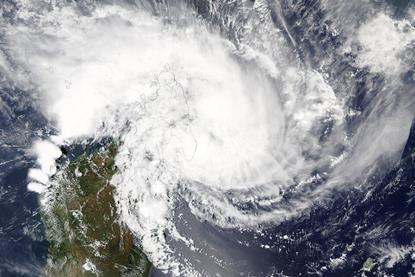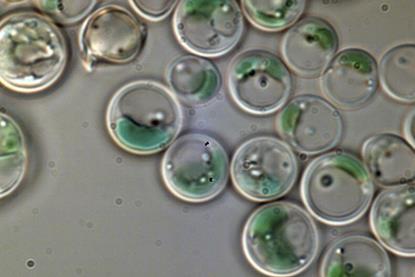Climate action
Today we are seeing climate change in action, increased concentrations of atmospheric greenhouse gases have led to a rise in sea levels, temperatures, and extreme weather patterns. Researchers have acknowledged the pivotal role microorganisms in producing sustainable biofuels, increasing carbon sequestration via soil microbes and reducing methane emissions in landfill sites. Microbial innovation will be vital in moving towards a low carbon economy.
News
Antibiotics in sediments may quietly boost greenhouse gas emissions
A study shows that pharmaceutical pollution alters nitrogen cycling and greenhouse gas emissions in coastal sediments. Even environmentally relevant antibiotic concentrations increased N₂O release, suggesting that widespread contamination may enhance estuarine climate forcing.
Read story- News
Deep ocean earthquakes drive Southern Ocean’s massive phytoplankton blooms, study finds
Researchers have uncovered evidence that deep underwater earthquakes can spur the growth of massive phytoplankton blooms at the ocean surface. The new findings point to a previously unknown relationship between the ocean floor and life at the surface.
- News
Bacteria resisting viral infection can still sink carbon to ocean floor
Researchers exploring the mechanisms of phage resistance and its effects on the ecological jobs done by ocean bacteria found that some of the mutations studied don’t interfere with the bacteria’s ability to carry out their job of capturing and sinking carbon to the ocean floor.
- News
Soil microbes in Colombia’s páramo and tropical forests respond to seasonal shifts
A new study has demonstrated that microbial communities in the soil of Colombia’s tropical forests and high-altitude páramos are significantly influenced by seasonal changes, particularly during the dry season.
More Climate change
Careers
A day in the life of a soil microbial ecologist
Dr. Taniya RoyChowdhury, a soil microbial ecologist and biogeochemist at the Woodwell Climate Research Center, describes a typical day.
- News
Fungal denitrification dominates soil N2O emissions after vegetation restoration in the Karst region
A new study demonstrates that soil fungal nirK-derived N2O in the karst region are significantly distinct between cropland and forest, soil NO3‒-N and sand are important drivers of the soil N2O emissions variation, especially after vegetation restoration.
- News
Study reveals how ocean’s most abundant bacteria diversify
New research has found that SAR11 marine bacteria are not a single, uniform population as often thought. Instead, they are organized into stable, ecologically distinct groups, essentially specialized “teams” adapted to specific environments, such as the coast versus the open ocean.
- News
Protists revealed as key players in soil carbon storage: Dual role uncovered in long-term study
A groundbreaking 27-year field study reveals that how soil protists differentially control fungal and bacterial necromass accumulation—a key process governing SOC storage.
- News
Scientists reveal how excess hydrogen triggers metabolic shifts and viral defense in syngas microbiomes
Syngas biomethanation—converting CO/CO₂/H₂ into renewable methane—relies on coordinated microbial interactions. A study reveals that excess hydrogen disrupts this balance, reducing methanogenesis efficiency and triggering major shifts in microbial metabolism and viral dynamics.
- News
Strengthening asphalt roads with a unique green ingredient: Algae
Researchers propose a figurative and literal green solution to improve the durability of roads and sidewalks: an algae-derived asphalt binder. For temperatures below freezing, results indicated that the algae binder reduced asphalt cracks when compared to a conventional, petroleum-based binder.
- News
Breakthrough AI speeds up discovery of life-supporting microbes
Scientists have developed a powerful new artificial intelligence tool called LA⁴SR that can rapidly identify previously overlooked proteins in microalgae - tiny organisms that produce much of the Earth’s oxygen and support entire aquatic ecosystems.
- News
Unseen allies: symbiotic bacteria help clean wastewater, but there is a catch
Scientists have identified new species of denitrifying endosymbionts in wastewater, highlighting their global prevalence – with an unexpected climate implication.
- News
Mutated baker’s yeast at the forefront of petroleum substitute tech
Researchers engineering Saccharomyces cerevisiae to produce 2,3-butanediol (2,3-BDO) introduced mutations into the genomic DNA. The researchers engineered four altered strains and subjected them to ethanol, heat, and low pH stressors.
- Features
The smell of the sea: how microbes shape Earth’s sulfur story
That distinctive “sea breeze” scent we associate with the coast isn’t just nostalgia; it’s the smell of microbial chemistry at work. Behind it lies an intricate web of microbial pathways turning sulfur compounds into gases that help shape Earth’s climate.
- News
Yeast cell factory developed to convert methanol into L-lactate
Researchers developed a yeast cell factory to produce L-lactate from methanol as the sole carbon source, and evaluated the commercial potential and environmental impacts of this bioprocess.
- News
New study reveals how natural humic substances reshape soil carbon cycling and boost antibiotic resistance
Researchers have uncovered surprising links between natural humification processes in soil, carbon metabolism, and the spread of antibiotic resistance. Subtle shifts in the composition of humic substances can reshape microbial metabolism and alter the abundance of antibiotic resistance genes.
- News
AFYREN and ESSE Skincare begin partnership to offer 100% natural cosmetic solutions with enhanced skincare performance
AFYREN, a greentech company offering manufacturers biobased, low-carbon ingredients through a unique fermentation technology, and South Africa-based Esse Skincare, a leader in microbiome skincare science, are partnering to introduce the world’s first bio-based propionic acid for the skincare industry.
- News
Climate extremes triggered rare coral disease and mass mortality on the Great Barrier Reef
Marine biologists have identified a devastating combination of coral bleaching and a rare necrotic wasting disease that wiped out large, long-lived corals on the Great Barrier Reef during the record 2024 marine heatwave.
- News
Volcanic eruptions set off a chain of events that brought the Black Death to Europe
Researchers have used a combination of climate data and documentary evidence to paint the most complete picture to date of the ‘perfect storm’ that led to the deaths of tens of millions of people, as well as profound demographic, economic, political, cultural and religious change.
- News
‘Creeping catastrophe’: Climate change is driving global rise in infectious diseases, leading health experts warn
Infectious diseases such as malaria, dengue, and tuberculosis are considered to pose as great a challenge to global health as new or emerging pathogens, according to a study. Participants reported that climate change, poverty, and drug resistance are combining to create an escalating health crisis.
- News
Biochar boosts hydrogen and methane yield in next-generation food-waste-to-energy systems
A research team has demonstrated that adding biochar to two-phase anaerobic digestion systems can significantly increase hydrogen and methane production from food waste, while maintaining system stability under high organic loading rates.
- News
The mystery of the missing deep ocean carbon fixers
New findings challenge the current view of how carbon dioxide is “fixed” in the sunless ocean depths. The study presents results that help to reconcile discrepancies in accounting for nitrogen supply and dissolved inorganic carbon (DIC) fixation at depth.
- News
Microalgae could play key role in bio-based circular economy
With food systems under pressure from climate change, geopolitical instability, and supply chain vulnerabilities, the EU is driving innovation toward more sustainable, resilient, and local production models. Microalgae have emerged as a promising resource for producing ingredients across food, feed, and other consumer goods.






